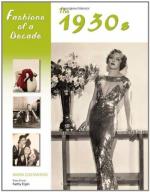|
This section contains 95 words (approx. 1 page at 300 words per page) |

|
Small motels, or cabin camps, as they came to be called, were predominantly mom-and-pop operations, cheaply constructed and run with family help. They remained the major roadside lodging for noncampers until the end of World War II. The cabins offered easy access from the highway, free parking, no clerks or tipping, informality, and privacy. Motor courts were first built in California, Florida, and Texas. These establishments combined the advantages of the cabin camp with sturdier constructions and hoteltype conveniences such as indoor plumbing and private bathrooms.
|
This section contains 95 words (approx. 1 page at 300 words per page) |

|




